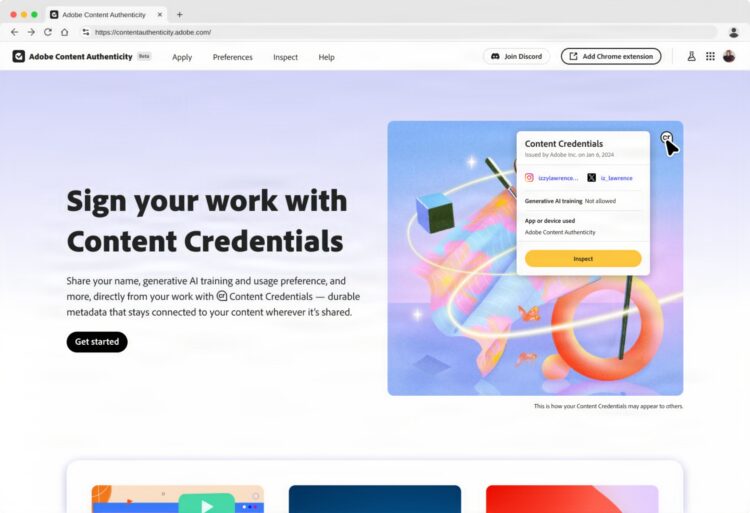Adobe has introduced a new web app, Adobe Content Authenticity, designed to help creators protect their work and ensure they receive proper attribution through Content Credentials. These credentials function like a “nutrition label” for digital content, allowing creators to attach secure metadata that provides details about the creation and editing process of their work.
The app is part of the company‘s ongoing efforts, since founding the Content Authenticity Initiative in 2019, to promote transparency in digital content. With over 3,700 members supporting this initiative, Content Credentials have become a valuable tool for combating misinformation and AI-generated deepfakes, helping publishers provide consumers with reliable information to assess content trustworthiness. A new study by Adobe highlights that 91% of creators are seeking reliable methods for attribution, especially amid rising concerns over unauthorised use of their work or AI exploitation.
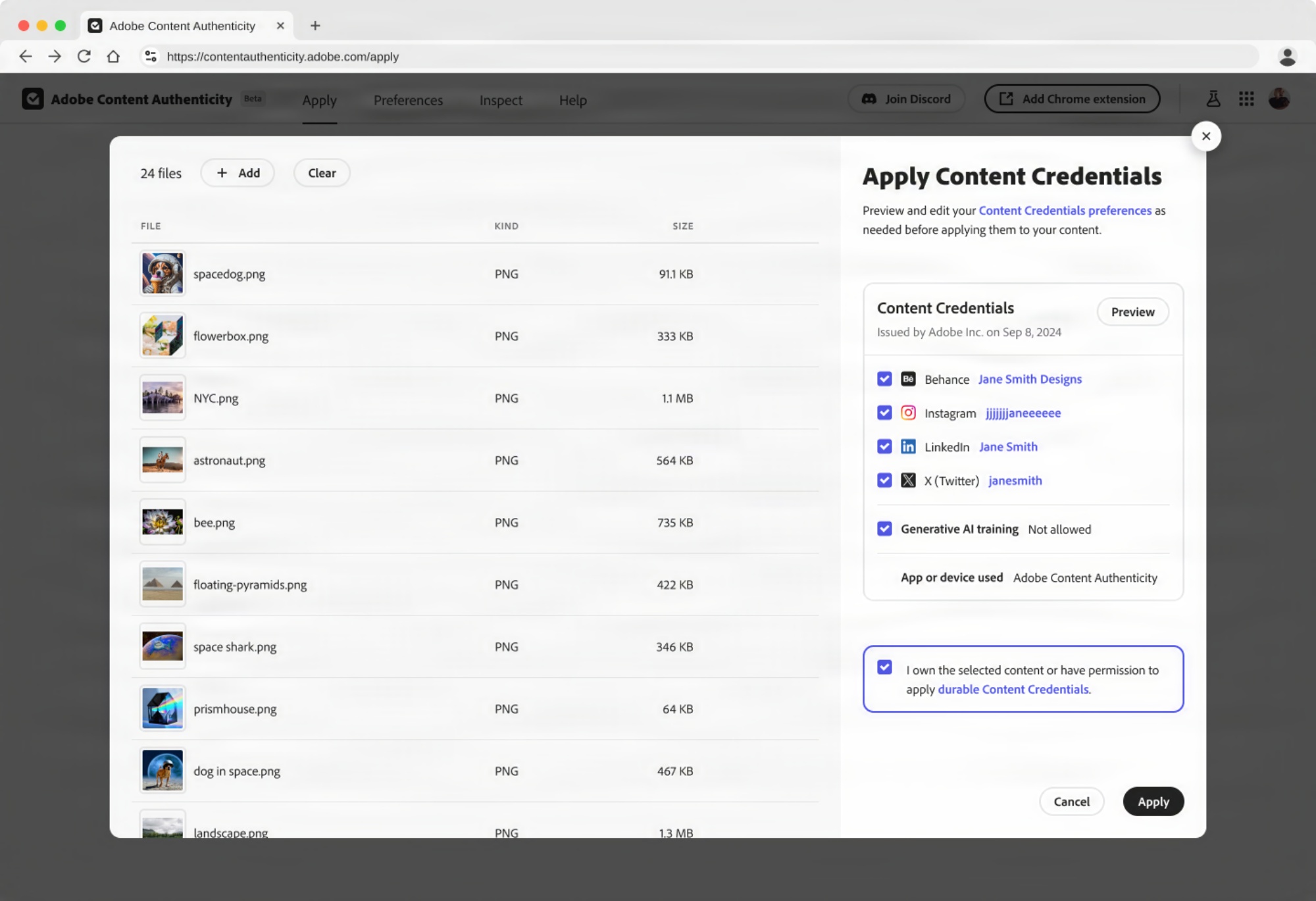
The Adobe Content Authenticity app further expands on this initiative, allowing creators to safeguard their work from misuse or misrepresentation. It was developed in collaboration with creators, incorporating their feedback to ensure it meets their needs. It integrates with Adobe Creative Cloud apps like Photoshop and Lightroom, serving as a hub for managing Content Credentials.
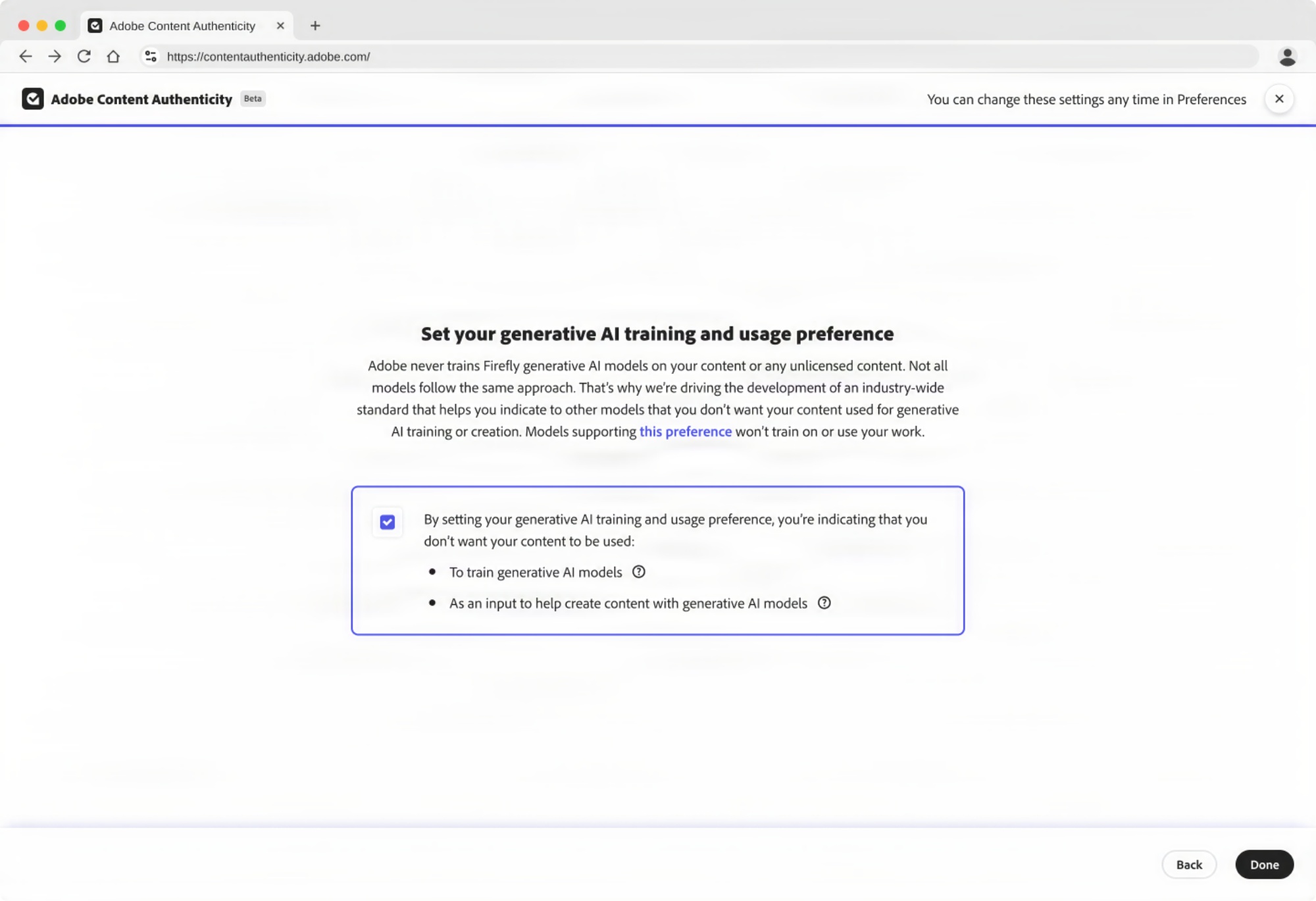
The app offers a free and straightforward way for creators to apply Content Credentials to images, audio, and video files. Users can customise the credentials to include personal details, such as their name or social media accounts, ensuring proper attribution. For the uninitiated, Content Credentials combine digital fingerprinting, invisible watermarking, and cryptographically signed metadata to remain secure throughout the content lifecycle, even if original data is removed or altered.
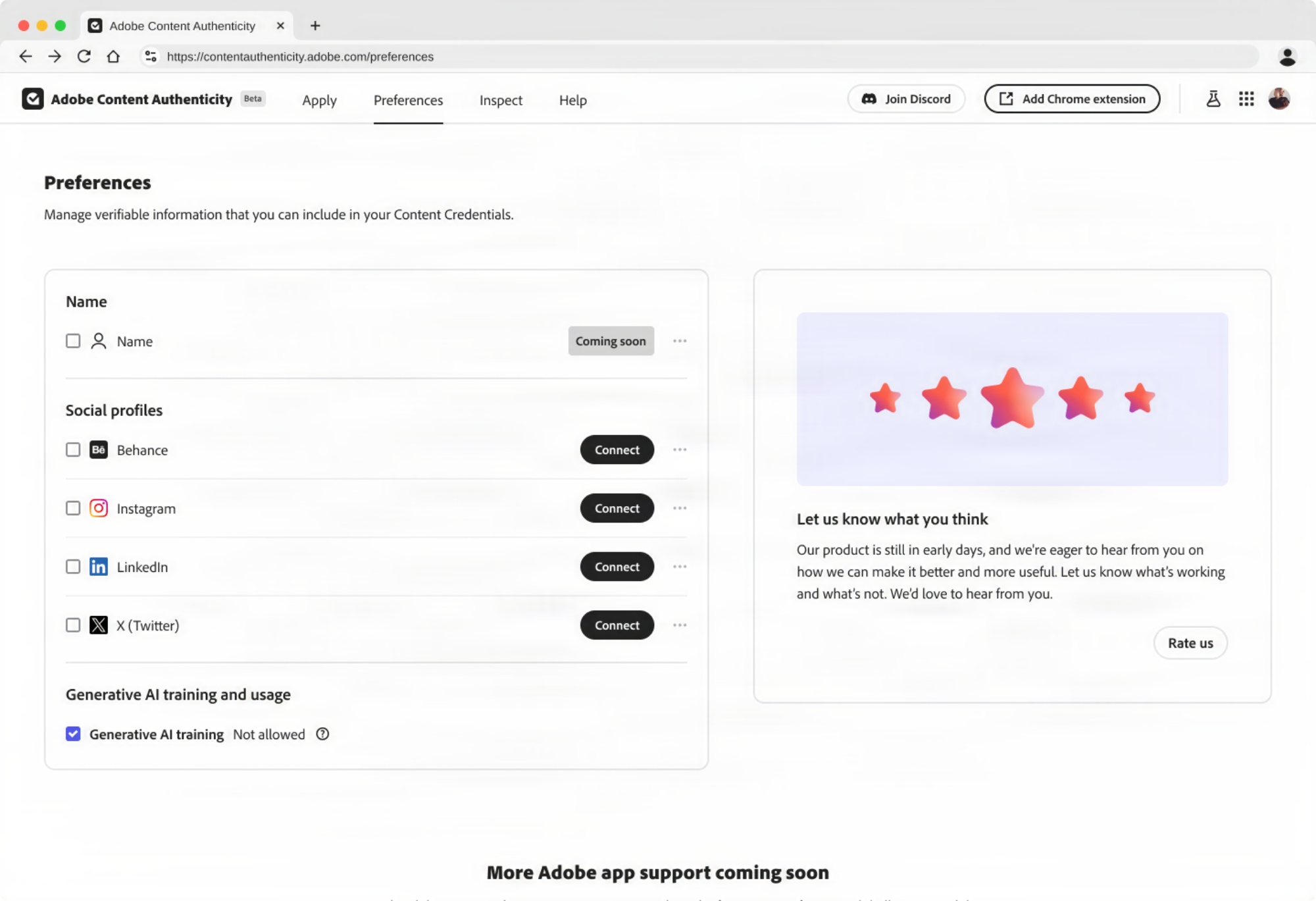
Adobe Content Authenticity also features preferences for generative AI, letting creators determine if they do not want their content used to train AI models, with Adobe actively encouraging industry-wide adoption of this approach. Further, it includes tools like the free Content Authenticity extension for Google Chrome, which can recover and display any associated credentials, ensuring transparency even when content is posted on platforms that don’t retain provenance information.
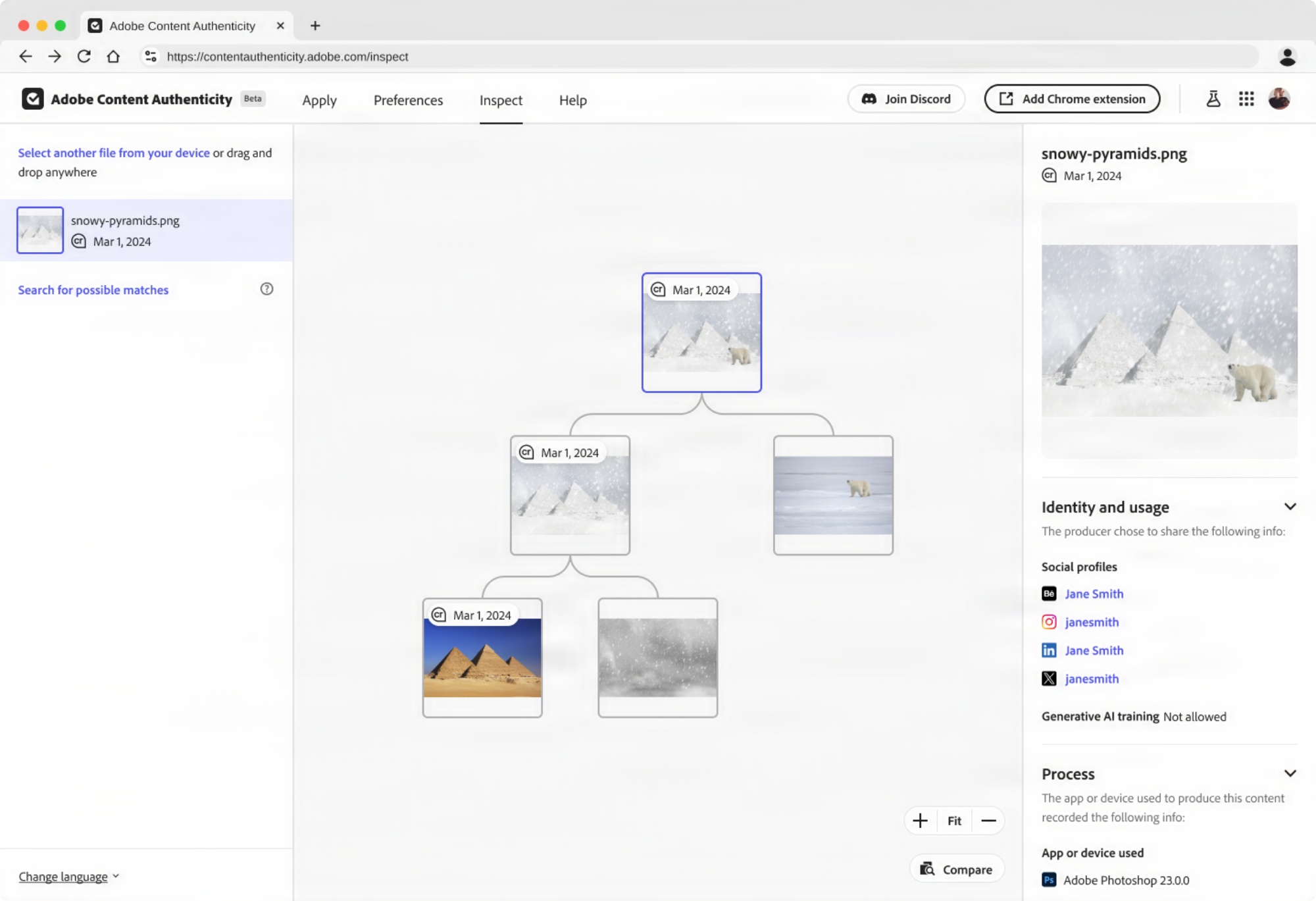
A public beta for the web app will be available in early 2025, with a beta for the Google Chrome extension available now. Creators can learn more about the web app and sign up here to be notified when the beta is available.
(Source: Adobe press release / official website)
Follow us on Instagram, Facebook, Twitter or Telegram for more updates and breaking news.


